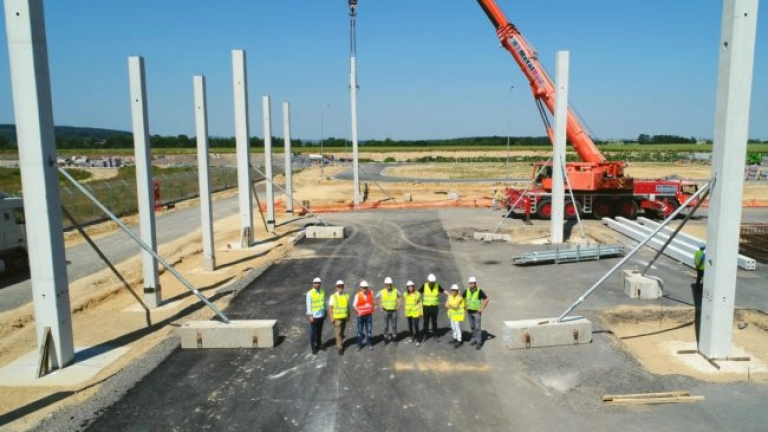The Mercedes electric battery factory has come out of the foundations!

There is no turning back from electric motoring. Although the “electromobility meter” installed on the PZPM website indicates less than 6,000 purely electric and electrified vehicles registered until the end of May this year in Poland, the trend is growing. Amateurs of ecological vehicles are not deterred either by the higher price of cars or by a small number of charging stations (about 700).
Mercedes has been involved in zero-emission vehicles since the early 90s, when the NECAR 1 (no emission car), a fuel cell supply vehicle (fuel cell); since then, Daimler’s portfolio includes practically all types of alternative drives: from plug-in hybrids that are plugged by fuel cells to the new family of EQ (Electric Intelligence) vehicles.
“By 2022, our company plans electrification of the entire Mercedes portfolio and will offer customers different versions of electric vehicles – and in every class. Batteries for these vehicles, both hybrid and purely electric, will be produced, among other things at the factory in Jawor. The plant in Jawor in Lower Silesia will become an important part of the global network of electric battery production” says dr Ewa Łabno-Falęcka, Corporate Affairs and External Relations Director for Mercedes in Poland. – “After only 6 months since the announcement of the construction decision, at the end of June we put the first structural elements (supports) for the production and assembly hall. The production of batteries for vehicles from the EQ family will start at the beginning of the next decade.”
The electric battery factory in Jawor is the second investment of Mercedes in Poland. The first is an intelligent factory of technologically advanced two-litre, four-cylinder engines for conventional vehicles. Both projects will use state-of-the-art technological solutions. Like the engine factory, the newly established plant will be supported by renewable energy sources.